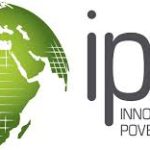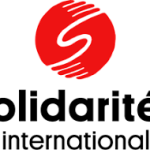Description
GENERAL BACKGROUND
Overlapping drivers of displacement worldwide have coincided and increased the scope, scale, and complexity of displacement. Approximately 25.4 million individuals are recognized as refugees who have fled their homes due to a well-found fear of persecution. This is alongside millions of internally displaced persons and those who have fled their homes but are not recognized as refugees by the 1951 Refugee Convention. In response to the considerable challenges posed by forced displacement, a strategic partnership, named PROSPECTS, was established by the Government of the Netherlands, IFC, UNICEF, ILO, UNHCR and the World Bank. The partnership spans eight countries and covered an initial five-year period (2019- 2023), which has since been extended into a second phase (2024-2027).
Through the PROSPECTS partnership, the World Bank, IFC, UNICEF, UNHCR and ILO aim to leverage their comparative advantages and areas of expertise to programme complementary and interdependent interventions that address education, employment and protection challenges that negatively affect the livelihoods and well-being of host communities and forcibly displaced persons. The combined efforts of the organizations will endeavour to bolster the medium- and longer-term development goals for host communities and forcibly displaced persons to access quality and market-relevant education; decent work and enterprise opportunities; and comprehensive protection systems.
PROSPECTS IN JORDAN
Jordan is facing a historic forced displacement crisis and as the crisis extends into the next decade, the country is at an inflection point, given the scope, scale and protracted nature of the displacement. Through PROSPECTS, partners will undertake interventions that will align with national strategies, helping to mitigate the impact of the current displacement crisis on both refugee and host communities, with a longer-term goal of supporting human development through support to increased economic opportunities, wider access to quality education and stronger protection mechanisms. As of January 2020, Jordan hosted over 745,000 refugees, including over 655,000 Syrians and almost 100,000 other nationalities. Children represent a little over half of the refugee community. With refugees constituting almost seven percent of Jordan’s population, the Kingdom is one of the top refugee hosting countries per capita worldwide.
Whilst Jordan’s economic situation pre-dated the Syrian crisis, the impact of its forced displacement crisis has worsened the situation. The IMF has estimated that Jordan’s economy lost one percent of the gross domestic product (GDP) each year of the crisis due to investment and export losses. Syrian and Jordanian households across the Kingdom continue to live in highly vulnerable conditions, with all communities dependent on overstretched and weak education systems; limited, and often informal,
employment opportunities; poorly coordinated protection systems; and nascent social safety nets.
Within the framework of PROSPECTS, partners will undertake interventions that will align with national strategies, helping to mitigate the impact of the current displacement crisis on both refugee and host communities, with a longer-term goal of supporting human development through support to increased economic opportunities, wider access to quality education and stronger protection mechanisms The five partners aim to leverage their joint efforts to address the areas where challenges negatively affect the livelihoods and well-being of Jordanians, refugees and other vulnerable groups: access to quality and market-relevant education; decent engagement, work and enterprise opportunities; and comprehensive protection systems, which will, in turn, support more sustainable livelihoods, in line with Jordan’s national plans.
COOPERATIVE DEVELOPMENT IN JORDAN
In response to the refugee crisis, the ILO views cooperatives as essential for promoting decent work and social justice through employment-rich interventions that address the needs of both refugees and host communities. The ILO has a unique mandate on cooperative development guided by its international standard, Recommendation 193 on the Promotion of Cooperatives, 2002 and recognises the role of cooperatives in promoting decent work and improving living and working conditions of women and men refugees and vulnerable host communities. In particular, the importance of cooperatives in supporting displaced persons and host populations was highlighted and documented in the report “Mapping responses by cooperatives and social and solidarity economy organizations to forced displacement” published in 2020.
In Jordan, the ILO has been working closely with the cooperative movement to strengthen its capacity to enhance livelihoods opportunities for Jordanian, refugee, and migrant women and men, particularly those employed in the agricultural sector. Under the first phase of PROSPECTS Jordan (2019-2023), interventions were designed and implemented in a comprehensive three-fold approach to enhance the role of cooperatives in promoting decent work and productivity in agriculture and other sectors as follows:
- At the macro level, the ILO supported the Government of Jordan, social partners, and the Jordanian Cooperative Corporation[1] (JCC) with the development and launching of a 2021-2025 national cooperative strategy for the Jordanian cooperative movement and proposed amendments to the existing cooperative law in line with the ILO Recommendation 193 on the Promotion of cooperatives (2002). The strategy and cooperative law amendments served to establish a conducive environment for the Jordanian cooperative movement, an efficient service infrastructure for cooperatives and unions, and autonomous, self-reliant cooperatives providing efficient services to members.
- At the meso level, the ILO supported the Jordanian Cooperative Corporation (JCC) with a range of capacity building initiatives aiming to raise awareness on cooperatives as a viable enterprise model for informal economic units, improve governance and business management in cooperatives using ILO tested training tools Think.COOP, Start.COOP and My.COOP and aiming to form a pool of certified trainers within JCC. Efforts also sought to , eliminate child labour among agricultural cooperatives, and strengthen the cooperative audit function within JCC and beyond, to promote occupational safety and health, a Practical OSH Tool for Cooperatives in Agriculture was developed, pilot tested in Jordan, targeting pool of trainers including JCC, MOL, and trade union representatives
- At the micro level, capacity building activities through JCC trained staff members extended direct support to cooperatives, namely in the agriculture sector, to tackle the above-mentioned technical areas related to governance, business management, , and child labour; all of which leading to productive cooperatives with a higher capacity to improve livelihoods of Syrian refugees and Jordanians. In addition, the ILO worked with cooperatives to promote flexible work permit issuance, rights at work in the agriculture sector, and career guidance and job matching services to workers in local communities.
[1] The JCC has a regulatory function: the elaboration of laws governing cooperatives in Jordan; the registration, supervision, auditing, and liquidation of all types of cooperatives in Jordan, JCC also has a developmental function: training and education of cooperative leaders and members, general awareness about cooperatives, provision of business support services; access to finance, among others
ASSIGNMENT BACKGROUND AND OBJECTIVES
As the Partnership ends its first phase and enters into the second phase (2024-2027), there is opportunity to take stock and document experiences, good practices, lessons learned, and results achieved thus far in relation to the cooperative development component. This exercise, which complements global efforts to document experiences and lessons learned in the 8 PROSPECTS countries, will also serve to inform the second phase of PROSPECTS and particularly help design and plan for further support activities for cooperatives in Jordan.
In addition, the multi-agency and multi-country nature of the Partnership provides space for learning across thematic areas and seek entry points to create further linkages between cooperatives and specific areas within the employment and education pillars, The specific objectives of the assignment are as follows:
- Capture and analyse cooperative development interventions and results in the context of forced displacement in Jordan under PROSPECTS Phase I.
- Highlight good practices to use as replication and scale-up strategies in Jordan and possibly in other PROSPECTS countries.
- Identify gaps to address and opportunities to explore within the cooperative sector and its linkages to other areas including employment, skills development, social protection, just transition, digital transition, women’s economic empowerment, and youth employment.
- Extract and compile lessons learned from Phase I that can benefit other contexts and different stakeholders.
Ultimately, the exercise will enable knowledge generation and transfer in a format that supports the ILO and different stakeholders to have an intervention model focused on cooperative development as an integrated solution for improved education, employment, and protection for refugees and host communities.
SCOPE OF WORK
The ILO is seeking the services of a consultant to conduct a comprehensive documentation of good practices, lessons learned, and results of cooperative development interventions under Phase I of PROSPECTS Jordan. The consultant’s work will support the transition into Phase II by providing valuable insights and recommendations. More specifically, the consultant is requested to:
- Carry out a desk review of programme evaluations, PROSPECTS mid-term evaluation, information and data/information extracted from the global lessons learned work, project progress reports, publications, training reports. This includes examining the national cooperative strategy, amendments proposed to the cooperative law, capacity building activity reports and processes initiated by the ILO and involving different stakeholders.
- Develop and validate interview guides and tools, with guiding questions and a list of suggested key interviewees.
- Conduct interviews and consultations with ILO programme officers at country, regional and HQ levels, as well as with relevant stakeholders involved in cooperative development interventions including representatives from the government, employers’ and workers’ organisations, the cooperative movement, Jordanian and Syrian refugee workers. This will include field visits to cooperatives benefitting from programme activities in Jordan.
- Facilitate workshops or roundtable discussions as needed to collect information from stakeholders and beneficiaries.
- Gather qualitative data on cooperative interventions, results, good practices, challenges and opportunities, and lessons learned to take stock of Phase I and inform Phase II. This builds on the global lessons learned exercise and case studies documented through mid-term evaluation and recent progress reports. It includes developing case studies highlighting successful interventions, innovative practices, practices to improve or avoid, and impact on target beneficiaries.
- Conduct a rapid benchmarking exercise comparing cooperative development interventions in Jordan with those in other PROSPECTS countries and globally recognized models. This includes identifying good practices and innovative approaches from regional and international contexts that can be adapted and implemented in Jordan.
- Compile a detailed report incorporating the above-mentioned qualitative data and information, a narrative and detailed analysis of cooperative development interventions under the programme, and providing clear recommendations and proposed activities on the way forward for Phase II.
- Propose a preliminary intervention model for cooperative development in forced displacement setting.
- Facilitate a validation workshop with ILO officials and relevant Jordanian stakeholders to present and validate findings of the lessons learned exercise.
DELIVERABLES
The consultant is expected to submit by 18/12/2024 the following deliverables in English:
- Inception Report (7 days): This initial report will outline the framework for the documentation of good practices, lessons learned, and results of cooperative development interventions under Phase I of PROSPECTS Jordan including:
- A summary of the desk review as previously described.
- The methodology and approach planned for the documentation process.
- A proposed outline for the final documentation report.
- Interview guides and tools, with guiding questions and a list of suggested key interviewees,
Deliverable 1 to be submitted 7 days after signature of the contract
- Fact-Finding Brief Report (10 days): detailing proceedings and findings from the interviews conducted with various ILO officials and Jordanian stakeholders during online meetings, consultative workshops, roundtable discussions, and field visits.
Deliverable 2 to be submitted 7 days after the fact-finding mission
- Final Documentation Report (10 days): A comprehensive documentation report detailing the cooperative development interventions and related results, good practices and lessons learned, incorporating analysis from the interviews and complementary desk research. This report should be revised according to feedback from the ILO and include:
- A narrative of the cooperative development interventions in Jordan at macro, meso, and micro levels.
- Results and impact achieved at policy, institutional, cooperative, and worker levels.
- Good practices and comparative insights with other PROSPECTS countries and globally recognized models.
- Challenges and lessons learned.
- Clear recommendations and proposed concrete activities for Phase II for the cooperative sector and for linkages with PROSPECTS pillars and ILO priorities listed above (just transition…)
- Preliminary intervention model for cooperative development in forced displacement settings.
- A PowerPoint presentation summarizing findings of the report
Deliverable 3 to be submitted by 30 November 2024 at the latest
All work mentioned in this ToR should be finalized by 18/12/2024 at the latest with completion of the above-mentioned deliverables to the satisfaction of ILO PROSPECTS
Jordan/HQ and HQ COOP/SSE Unit.
REQUIRED EXPERTISE:
The consultant is expected to have the following minimum qualifications:
- Advanced university degree (Master’s or higher) in social sciences, economics, development studies, business administration, cooperative management, or a related field.
- 7 to 10 years of professional experience in cooperative development, socio-economic development or related field in Jordan and the Arab region.
- 7 to 10 years of experience in knowledge generation, management, and learning.
- Excellent analytical, research and writing skills (primarily English), as evidenced in writing samples and previous reports.
- Demonstrated ability to conduct and document interviews, as well as carry out interactive exchanges with key stakeholders in English and Arabic.
- Experience facilitating lessons learned and knowledge management exercises using interactive and participatory methods.
- Demonstrated experience working with large international organizations and/or firms on similar assignments.
- Experience in the field of refugees and forced displacement is an added advantage.
SELECTION CRITERIA
Interested consultants should submit the following documents in their application:
- CV
- Detailed technical proposal responding to the requirements of the above terms of reference.
- Sample of a past similar assignment including a written report in English.
- Financial proposal including a clear budget breakdown, daily fees, and any foreseen expenses.
Selection will be made against the required experience and based on the proposal with the highest value for money. Clarity of the proposal, provision of all required documentation, and innovative delivery are considered as a cross cutting measurement criteria.
SUPERVISION AND LOGISTICAL ARRANGEMENTS
The consultant will perform the assignment under the direct supervision of the ILO PROSPECTS Jordan Project Manager and National Project Officer for Agriculture, and the overall guidance of ILO PROSPECTS Chief Technical Adviser for the Arab States Region. Technical inputs will be sought from the COOP/SSE Technical Officer and the Knowledge Content Management and Learning Officer of PROSPECTS Global Team at HQ.
TIME FRAME/EXPECTED DURATION
This assignment will take place from 22/09/2024 to 18/12/2024
All assignment deliverables are expected to be submitted to the satisfaction of the ILO by 18/12/2024.
How to apply
The interested service providers should submit their financial and technical offers based on a daily rate. All documents should be sent by email to info.prospect-jo@ilo.org , by 8th Sep 2024, with the subject line “Consultancy to Document Good Practices, Lessons Learned and Results of Cooperative Development Interventions under PROSPECTS Jordan”



